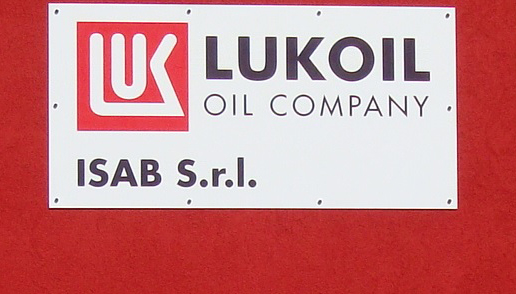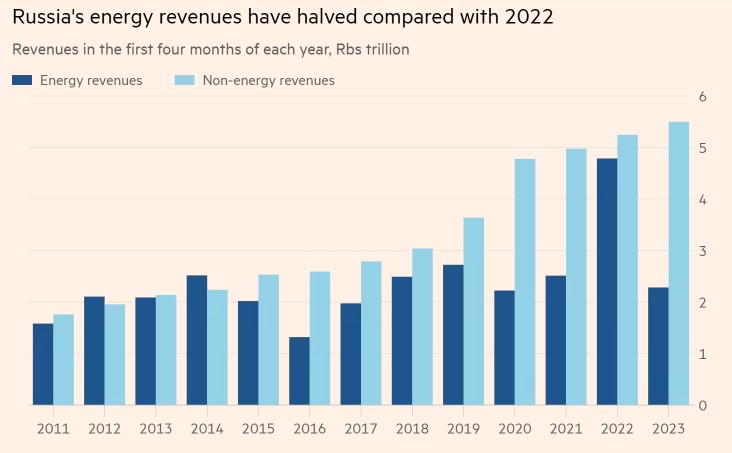Not only ISAB: this is how Russia circumvents the blockade on oil

Isab of Priolo Gargallo is part of an oil triangulation that starts from Russia and arrives in the United States. Meanwhile, Europe buys Russian crude through India. Yet the Kremlin is having trouble making ends meet. All the details
Made the law, found the deception. And so the United States is "more or less inadvertently" circumventing the blockade on oil purchases from Russia that they, together with the rest of the G7, have imposed.
LIMES ' INTERVIEW WITH THE OIL TRADER
Interviewed by the geopolitical magazine Limes , the oil trader Vittorio Amoretti said that there is "a triangulation between Russia, Italy and the United States to get around the sanctions and continue to export oil to America", and that this triangulation "passes through the ISAB refinery" : is located in Priolo Gargallo, in Sicily, and is one of the most important oil plants in Italy and in the Mediterranean. Owned by the Russian company Lukoil, the refinery was recently sold to the Cypriot private equity firm GOI Energy, which renewed its board of directors (in which, however, there is a director linked precisely to the Russian energy industry).
The sale of ISAB was deemed necessary to guarantee a future for the plant, because the Russian ownership did not allow it to receive from the banks the credit necessary to purchase crude oil not coming from Russia: essentially, the refinery risked closure, with major repercussions employment and energy for Sicily and Italy.
THE ROLE OF ISAB IN THE RUSSIA-ITALY-AMERICA "TRIANGULATION".
Before the war, ISAB was supplied with crude oil from a dozen different countries and Russia's share of the total, although very significant, was 30 percent. Before the Lukoil-GOI operation, however, the Russian share had risen to 90 percent, with the remainder being Kazakh or Kazakh mixed with Russian crude.
As revealed last November by the Wall Street Journal – whose investigation was picked up by Startmag -, after being refined at ISAB, Russian oil was shipped to the United States and delivered to energy companies such as ExxonMobil. From a formal point of view, however, the sanctions were not violated: the regulations in fact establish that the nationality of the oil is determined by the place of refining (i.e. Italy) and not by the place of origin of the raw material (i.e. Russia) .
"Technically, the regulation on sanctions has not been violated," Amoretti also told Limes , "given that petrol produced in Italy travels to the USA, without having to declare from which oil it was refined."
From March to November 2022, ISAB exported nearly 5 million barrels of petroleum products to the United States, including approximately 2.5 million barrels of gasoline. In 2021, Russia's share of oil imports (between crude and refined) was 8 percent, equal to that of Mexico (in second place) but significantly lower than that of Canada (51 percent, in first place).
INDIA SELLS RUSSIAN OIL TO THE EUROPEAN UNION
The most relevant oil triangulation for the European Union is instead the one that passes through India : Indian refineries buy crude oil from Russia (at a discount), process it and then resell it on the European market.
Again, this is not a violation of the sanctions: Brussels' objective is not to prevent Moscow from selling outside the European territory (otherwise it would create a supply crisis on the international market and prices would skyrocket, damaging the global economy), but to limit its gains (as is happening) so that it then has difficulty financing the war on Ukraine.
As Javier Blas, a journalist who is very expert on energy and raw materials, wrote a few days ago on Bloomberg , "the priority of sanctions is to keep the oil market well supplied, even if this means that Moscow, Tehran and Caracas [also Iran and Venezuela are subject to sanctions, ed ] they can sell oil”.
BUT THINGS ARE NOT GOOD FOR RUSSIA'S ACCOUNTS
However, exports of hydrocarbons are allowing Moscow to collect considerable figures, but in sharp decline compared to the pre-invasion period. The same Russian Finance Minister, Anton Siluanov, admitted that there are "problems", because in the first quarter of 2023 the revenues of the oil & gas sector decreased by 50 percent on an annual basis, to 27.3 billion dollars . As a result, the country could have difficulty closing an 8 percent hole in its budget, as ISPI analyst Matteo Villa points out .

Siluanov blames the situation on "all these discounts", i.e. the low selling prices of Russian crude oil on the Asian markets (Chinese and Indian above all) applied to increase its attractiveness and linked to the price cap of 60 dollars a barrel imposed by the G7. Already last December on Startmag we reported the consequences of the oil "price ceiling" mechanism on Russia's accounts.
– Read also: The “shadow ships” that carry Russian oil to India and China
This is a machine translation from Italian language of a post published on Start Magazine at the URL https://www.startmag.it/energia/russia-petrolio-triangolazione-isab-india/ on Thu, 25 May 2023 04:47:13 +0000.
